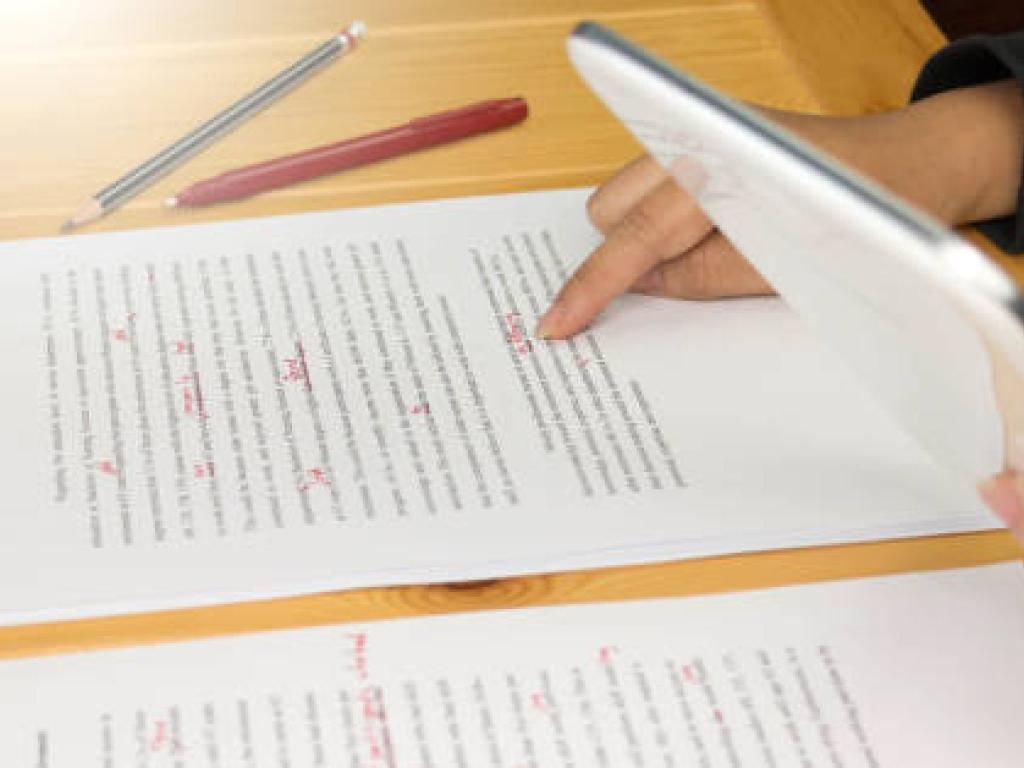Copy editing and proofreading examinable texts by John Linnegar

COPY EDITING AND PROOFREADING EXAMINABLE TEXTS
by JOHN LINNEGAR
Dates: 22 July to 5 August
Time: 18:00 to 20:30 on Tuesdays and Thursdays
Course fee: R6 900 full fee: Staff and students: R6 300: Professional Editors Guild members R6 300
Maximum: 20 participants
Platform: Zoom meetings
This course covers those facets of examinable academic texts (eg theses) that require the editor’s intervention: first, distinguishing editing from revising and proofreading, and indicating the writer’s and the editor’s role in each; distinguishing the different types and levels of editing required (eg language, content, structural, mechanical; light, medium and heavy) with a view to establishing the confines within which an editor of examinable texts must work; the ‘rules’ and ethics that apply to examinable texts; the ideal academic troika (student, supervisor, editor) and their roles and responsibilities; fixing and flagging; process versus product approach; permissible formatting of examinable texts; the editor’s engagement with references – what’s permitted and what’s not; and paying attention to the author’s voice while ensuring that the appropriate academic register is maintained (including word choice and verb usage), that the text reads like natural mother tongue and that Plain Language principles are applied to render the text both accessible to and engaging for the target readers. Ultimately, the course covers the essential facets and processes to be considered and dealt with if the editor’s intervention is to be systematic and lead to a polished final product ready for submission while remaining the writer-researcher’s own original work.
The course consists of five 2,5-hour sessions with appropriate exercises and readings issued to the participants as preparation for each session. The platform used is Zoom meetings and each session is recorded for the benefit of the participants.
Session 1 Levels and types of editing versus proofreading and those best suited to examinable works; fixing and flagging versus editing; process versus product approach.
Session 2 Editing examinable texts: the do’s and don’ts internationally; the ideal troika of student-writer, supervisor and editor; the ideal systematic editing process for both author and editor.
Session 3 Achieving the ideal register and authorial voice, including applying Plain Language principles to render text accessible to readers; and achieving coherence and cohesion through the use of connectors.
Session 4 Verb tenses and moods; hedging techniques and how editors can contribute to their correct usage.
Session 5 The extent of an editor’s engagement with referencing and lists of references and also with formatting (eg tables/figures, quoted matter, heads and subheads) and the use of abbreviations and acronyms.
Course objectives
By the end of this course, the attendees will have attained these learning outcomes:
1 Distinguish between the different levels and types of editing and between proofreading and copy-editing, as appropriate to examinable texts.
2 Understand and be able to adhere to the constraints imposed on editors of examinable academic texts, including fixing versus flagging and the process versus the process approaches to editing.
3 Apply Plain Language principles to render texts more accessible to readers at first reading while at the same time ensuring that the au-thor’s voice and the appropriate academic register is achieved.
4 Ensure that the appropriate verb tenses and moods are used in the different components of academic texts; and to apply hedging tech-niques involving both modal verbs and adverbs.
5 Engage at the appropriate level and extent with references and also in formatting texts.
6 Deal appropriately and consistently with quoted matter, tables and figures, heads and subheads, and abbreviations and acronyms, follow-ing established conventions.
Recommended texts
A Einsohn & M Schultz The Copyeditor’s Handbook 4 ed (2019)
E Henning, S Gravett & W van Rensburg Finding your Way in Academic Writing 2 ed (2019)
E Hofstee Constructing a Good Dissertation (2018)
Janet Mackenzie The Editor’s Companion (2011)
J Linnegar & K McGillivray Academic Writing & Editing: Towards Clear, Concise and Coherent Texts (2024)
K van de Poel, WAM Carstens & J Linnegar Text Editing: A Handbook for Students and Practitioners (2022)
For more information about registration and payment: Bronwyn Geldenhuys: Bronwyn.geldenhuys@uct.ac.za
